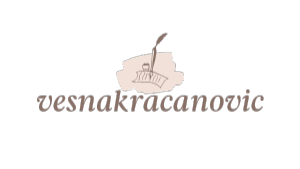In the world of words, finding the right MFA creative writing program can feel like searching for a needle in a haystack—if that needle were a golden ticket to literary stardom. With so many options out there, it’s easy to get lost in the sea of syllabi and student loans. But fear not, aspiring authors! The best programs are out there, ready to transform your caffeine-fueled scribbles into polished prose.
Table of Contents
ToggleOverview of MFA Creative Writing Programs
MFA creative writing programs provide comprehensive training for aspiring writers. Students enhance their craft through rigorous workshops and feedback from peers and faculty. These programs typically focus on various genres, including fiction, poetry, and creative non-fiction.
Programs generally range from two to three years in duration, allowing students to deepen their knowledge and develop their unique voices. Some institutions offer low-residency options, which include brief on-site residencies paired with extensive independent writing. This structure suits those balancing writing with work or family commitments.
Many programs emphasize building a community among writers. Networking opportunities often arise through readings, workshops, and literary events. These connections can foster collaborations and provide mentorship opportunities, invaluable for emerging authors.
Financial considerations play a crucial role in selecting a program. Many universities offer teaching assistantships, scholarships, or fellowships to alleviate tuition costs. Prospective students should investigate funding options available at each institution.
After completing an MFA, graduates typically pursue diverse career paths. Some may publish their works while others may enter education, editing, or publishing industries. The program’s reputation often influences job prospects, making it essential to consider overall rankings and faculty expertise.
The best MFA programs maintain a strong commitment to fostering individual writing styles. They encourage students to push boundaries, explore new ideas, and develop a nuanced understanding of language. Identifying programs that align with personal goals and interests remains vital for selecting the right fit.
Key Factors to Consider

Choosing the right MFA creative writing program involves several critical factors.
Curriculum and Specializations
Curriculum varies significantly between programs, so it’s essential to review each one closely. Many institutions offer specializations in genres like fiction, poetry, or creative non-fiction. Some programs provide unique electives that allow exploration of hybrid forms or experimental writing. It’s also important to consider whether the program emphasizes workshop-based learning since peer feedback is crucial for development.
Faculty and Mentorship
Faculty quality impacts the educational experience greatly. Prospective students should research the faculty’s published works and their professional backgrounds. Strong mentorship relationships often lead to valuable guidance during and after the program. Programs that feature diverse faculty can offer multiple perspectives, enhancing the learning process. Connections built with faculty may also aid in networking opportunities post-graduation.
Location and Campus Environment
Location plays a significant role in a student’s experience. Schools situated in vibrant literary communities often provide additional resources and inspiration. Furthermore, urban or rural settings come with unique advantages; urban areas may offer more networking events, while rural settings might foster focused writing time. Campus culture can also influence comfort level and productivity, so visiting the campus, if possible, can help in making informed decisions.
Top MFA Creative Writing Programs
Numerous MFA creative writing programs stand out for their unique strengths and offerings. Here are three prominent options.
Program A
Program A features a diverse curriculum that spans fiction, poetry, and creative non-fiction. Students benefit from an intensive workshop model, fostering in-depth peer discussions. Faculty includes acclaimed authors, offering mentorship and guidance tailored to individual writing styles. Networking events provide opportunities for real-world connections within the literary community. Additionally, the program emphasizes professional development, equipping graduates with skills for various writing careers.
Program B
Notable for its low-residency format, Program B caters to writers who balance commitments. This structure allows students to engage with faculty and peers through online workshops while benefiting from periodic in-person residencies. Faculty members boast impressive publishing records and extensive teaching experience. A vibrant campus culture encourages collaboration, enriching the overall learning experience. Financial aid options, such as teaching assistantships, help alleviate tuition burdens for dedicated applicants.
Program C
Program C ranks among the elite, offering a rigorous curriculum that blends creativity with critical analysis. Workshops emphasize revision strategies, enabling students to refine their manuscripts. Faculty support extends beyond the classroom, with opportunities for mentorship and professional networking. The program’s location in a bustling literary hub enhances student access to readings and events. Alumni frequently publish acclaimed works, showcasing the program’s effectiveness in nurturing successful writers.
Benefits of Pursuing an MFA in Creative Writing
Pursuing an MFA in Creative Writing offers numerous advantages that can significantly enhance a writer’s career. One key benefit includes access to professional mentorship from established authors. Programs often feature faculty with impressive publication records and a wealth of experience, providing invaluable guidance that fuels development.
Rigorous workshop environments play an essential role in these programs. Students receive constructive feedback from peers and instructors, which sharpens their writing skills. Frequent critiques encourage writers to refine their work, fostering a focus on revision and personal style.
Networking opportunities shape the writing landscape for MFA students. Many programs emphasize community engagement, enabling connections with fellow writers, industry professionals, and literary agents. Such relationships offer pathways to collaborations, potential publishing deals, and even career advancement.
Flexible curriculum options accommodate various interests and pursuits within creative writing. Many programs allow students to tailor their learning experiences through electives, catering to individual passions like fiction, poetry, or creative non-fiction. This adaptability enhances the overall educational experience, aligning with personal goals.
Gaining teaching experience through assistantships serves as another notable benefit. Several MFAs incorporate teaching components, allowing students to practice their craft while earning financial aid. Such positions also build essential skills that are critical in academia and other related fields.
Graduating from a reputable MFA program enhances a writer’s credibility. Completing an advanced degree signals a commitment to the craft, which can attract the attention of publishers and literary circles. Many successful authors and editors recognize the value of an MFA in establishing expertise and professionalism.
Investing in an MFA program ultimately opens doors for diverse career paths. Graduates often find opportunities in publishing, education, screenwriting, and other creative industries. These advantages illustrate why pursuing an MFA in Creative Writing proves beneficial for those serious about their literary aspirations.
Choosing the right MFA creative writing program is a pivotal step for aspiring writers. With an array of options available each offering unique strengths and opportunities it’s essential for students to carefully consider their personal goals and preferences. Programs that emphasize mentorship and community can significantly enhance the writing journey.
By investing in a reputable MFA program writers gain invaluable skills and connections that can propel their careers forward. Whether through intensive workshops or flexible low-residency formats these programs provide the tools necessary to refine one’s craft. Ultimately the right program can make all the difference in a writer’s development and future success.



